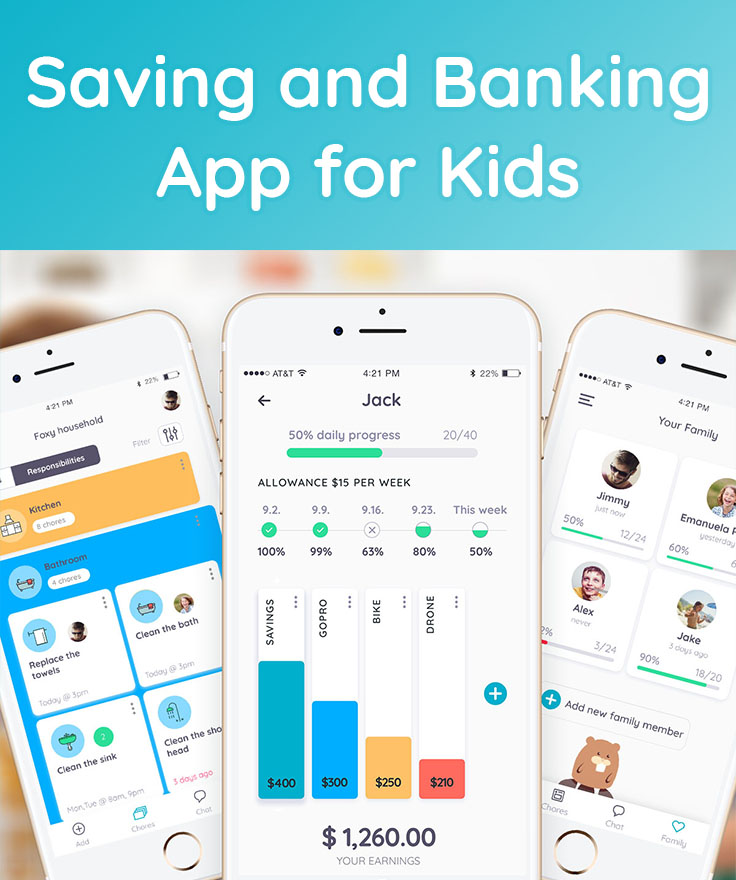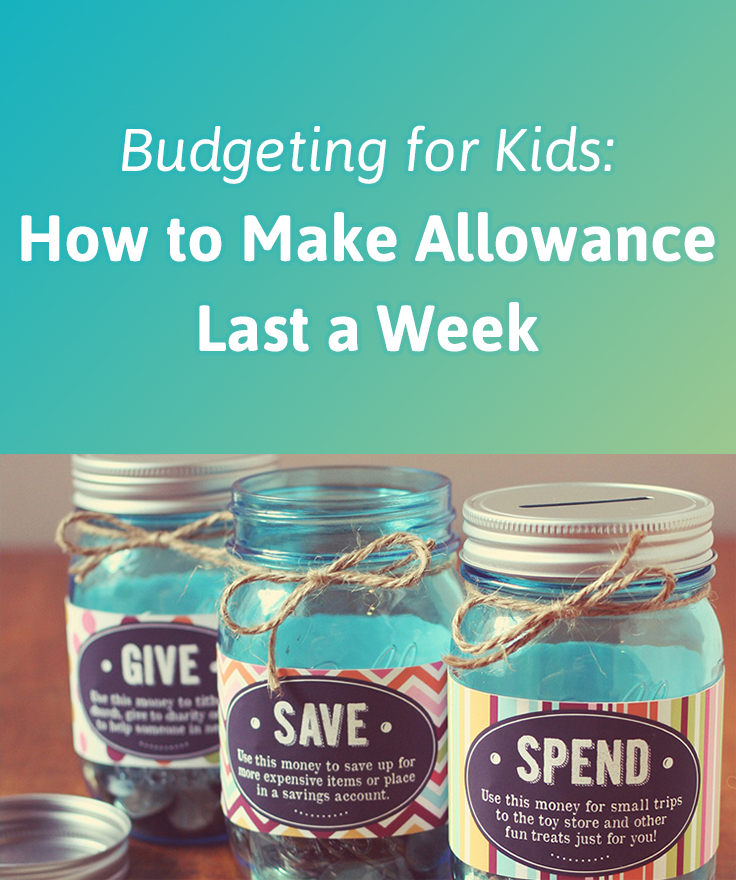financial literacy Archives - Page 3 of 3 - Homey App for Families
Help Your Kids Avoid Hasty Money Decisions
 You have it all figured out, the kids are earning their own money and saving it. You seem to have figured out how to guide your children towards determining what a need and a want is. The kids seem to comprehend basic financial tips, they have a bank account and are earning money on a regular basis. Then it happens, something arrives on the market and your kid is ready to spend all of that hard earned cash on something without thinking it through. There are ways you can help kids avoid hasty money decisions, but you may need to read these tips to assist in guiding you so that you and your kids survive this scenario.
You have it all figured out, the kids are earning their own money and saving it. You seem to have figured out how to guide your children towards determining what a need and a want is. The kids seem to comprehend basic financial tips, they have a bank account and are earning money on a regular basis. Then it happens, something arrives on the market and your kid is ready to spend all of that hard earned cash on something without thinking it through. There are ways you can help kids avoid hasty money decisions, but you may need to read these tips to assist in guiding you so that you and your kids survive this scenario.
Why It’s Important for Kids to Learn about Banking Early
 It’s important that you think about your kid’s financial future as well as their health. It seems a parent often focuses on one area of growth throughout their days of raising children. It’s easy to get consumed with the basic life skills that you must teach a kid, but we often neglect to think about the bigger picture. Kids need to learn basic money management skills from a young age and having a bank account will help them learn this skill.
It’s important that you think about your kid’s financial future as well as their health. It seems a parent often focuses on one area of growth throughout their days of raising children. It’s easy to get consumed with the basic life skills that you must teach a kid, but we often neglect to think about the bigger picture. Kids need to learn basic money management skills from a young age and having a bank account will help them learn this skill.
Saving and Banking App for Kids
 Teaching kids how to manage money is a vital part of parenthood but most often overlooked. As a means to help inspire kids to learn how to complete chores for money, Homey now released new financial literacy features. It allows parents to transfer kids’ chore earnings to an actual bank account to promote long term saving, enables kids to learn to manage their funds with the help of virtual saving jars, and offers families an adjustable system to track their chores and responsibilities.
Teaching kids how to manage money is a vital part of parenthood but most often overlooked. As a means to help inspire kids to learn how to complete chores for money, Homey now released new financial literacy features. It allows parents to transfer kids’ chore earnings to an actual bank account to promote long term saving, enables kids to learn to manage their funds with the help of virtual saving jars, and offers families an adjustable system to track their chores and responsibilities.
Don’t Let Your Kids Start a Lemonade Stand Until You Read This
For decades, youngsters have turned to the trusty roadside lemonade stand for a quick cash infusion when funds run low and the new issue of Superman is set to hit the local comic book shelves. As with everything else it seems, the world has changed dramatically. These days, by the time little Johnny or Suzie sells their first cup of the beverage, they’ve probably violated five different city ordinances and are in danger of being shut down by the local health department. It’s rough on a kid entrepreneur out there. Read on!
5 Things to Make Kids Buy for Themselves
Every parent quickly realizes that learning to say “no” is a big part of raising kids, especially when they’re constantly asking, “can I have this?” While giving in to some requests is reasonable, always saying yes can result in kids not learning the value of a dollar. If you’re interested in teaching your children financial literacy, then having them pay for things themselves is a great lesson. What should they buy? The examples below are reasonable things they can foot the bill for.
Money Goals for Kids
 While kids are quick to understand short term money goals, teaching them to set mid and long term financial goals may not be that easy. If you work to follow all of the suggestions we have shared here, then perhaps the financial goal teaching side of parenthood will be easier for you and your kids.
While kids are quick to understand short term money goals, teaching them to set mid and long term financial goals may not be that easy. If you work to follow all of the suggestions we have shared here, then perhaps the financial goal teaching side of parenthood will be easier for you and your kids.
Children need to learn how to set money goals because they will become an adult at some point and it is smart that they learn to to start planning for their financial future now.
Here are some tips on how you can help your kids create their own money goals without much stress.
How to Explain Credit Cards to Kids
 There’s much discussion about teaching kids to be financially responsible but what about credit responsibility?
There’s much discussion about teaching kids to be financially responsible but what about credit responsibility?
There comes a time in every parent’s life when they have to explain credit cards to kids. While this may seem like something you don’t really desire to explain, it’s necessary.
Credit matters more than just the plastic cards you carry in your wallet or purse. It’s time to start explaining credit cards to kids so that they know the true impact of using such a plastic item.
Budgeting for Kids: How to Make Allowance Last a Week
 While there is much debate about paying kids an allowance, there are many benefits to implementing it. Paying kids some form of an allowance during their childhood is an easy way to teach them some budgeting skills. As most parents know, lessons instilled during childhood can go a long way into adulthood, allowing your child to grow up being able to manage money more efficiently.
While there is much debate about paying kids an allowance, there are many benefits to implementing it. Paying kids some form of an allowance during their childhood is an easy way to teach them some budgeting skills. As most parents know, lessons instilled during childhood can go a long way into adulthood, allowing your child to grow up being able to manage money more efficiently.
If you are someone who pays their children allowance on a weekly basis and finds that kids are blowing their cash way too quickly, then read on for some tips on how to teach kids to budget their allowance so that it lasts all week long.
4 Ways to Teach Kids about Smart Spending
 As parents it’s our job to teach our kids about financial responsibility. This means that you shouldn’t feel guilty for not buying junior that much desired video game or little Lilly that doll she’s been begging for. Even if you are a parent who makes enough money for those extras, it’s good to handle a little restraint. Kids are forever watching their parents. Kids comprehend more than parents give them credit for. As you work to practice smart spending habits, the kids will pick up some of those habits.
As parents it’s our job to teach our kids about financial responsibility. This means that you shouldn’t feel guilty for not buying junior that much desired video game or little Lilly that doll she’s been begging for. Even if you are a parent who makes enough money for those extras, it’s good to handle a little restraint. Kids are forever watching their parents. Kids comprehend more than parents give them credit for. As you work to practice smart spending habits, the kids will pick up some of those habits.
